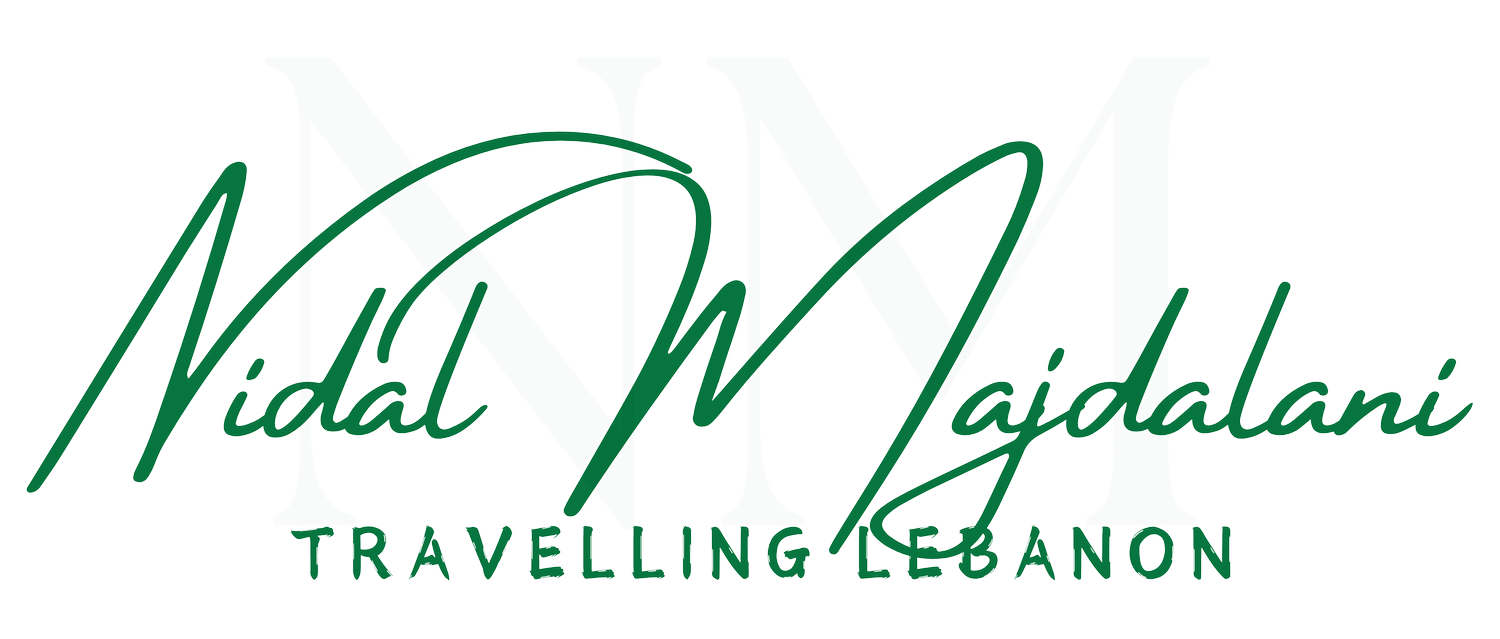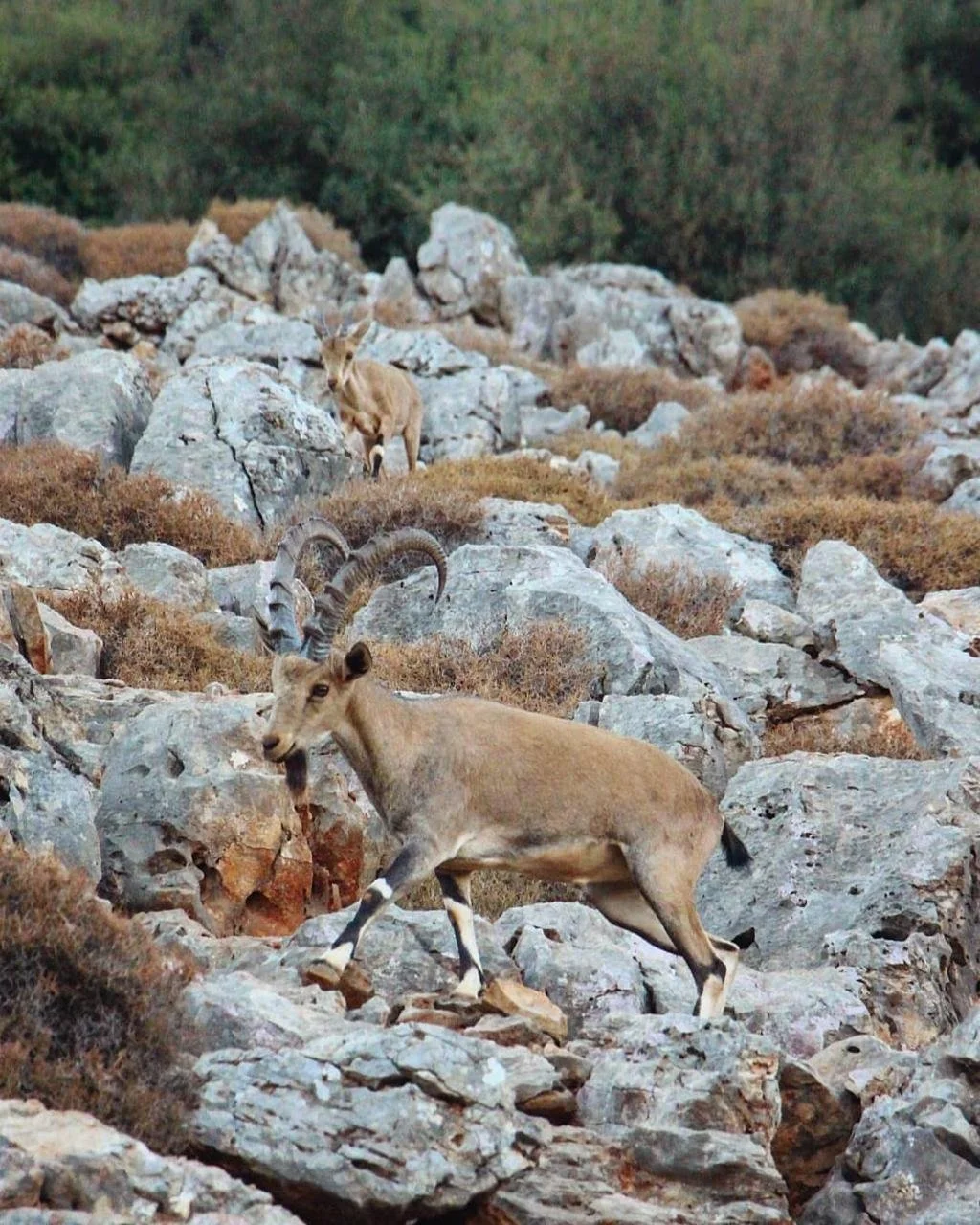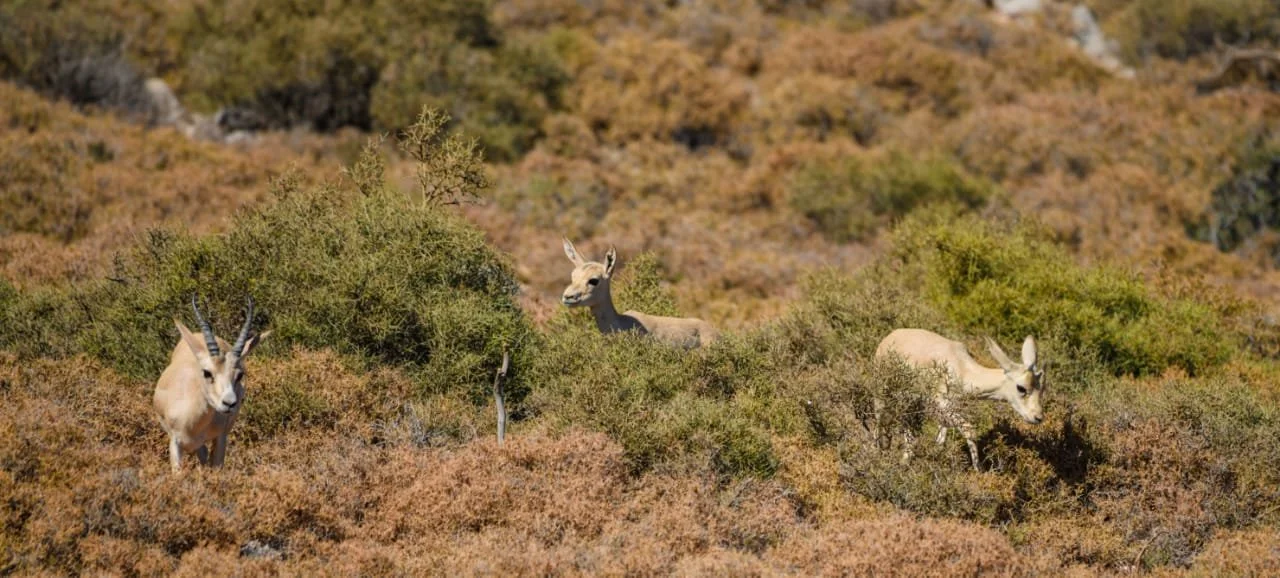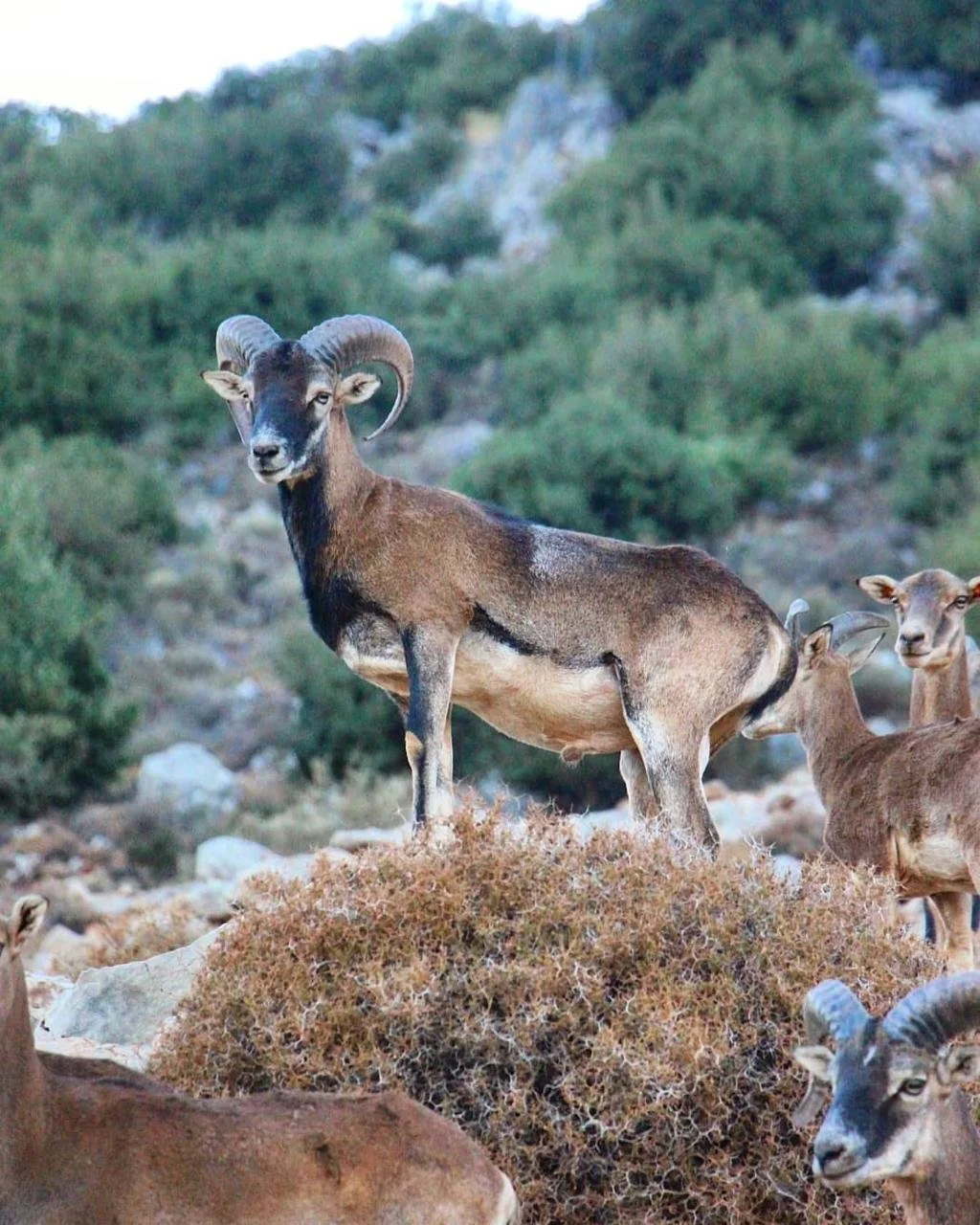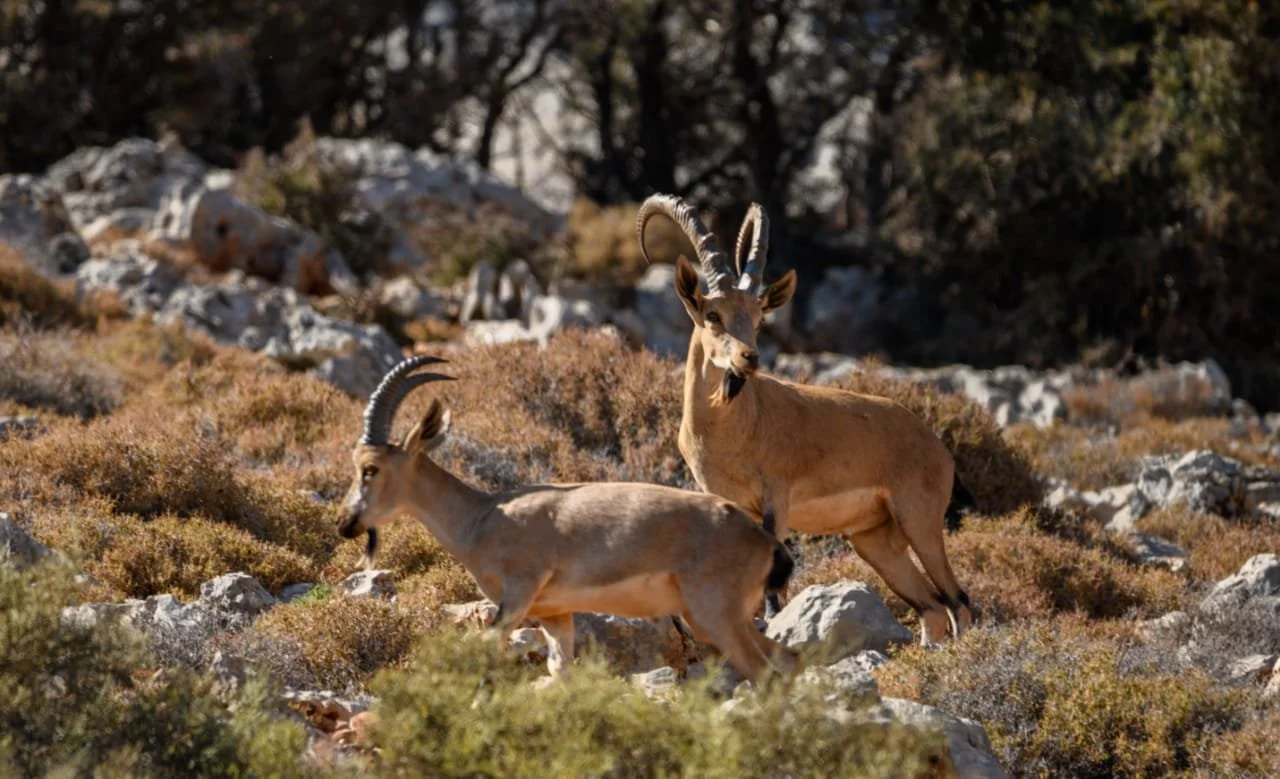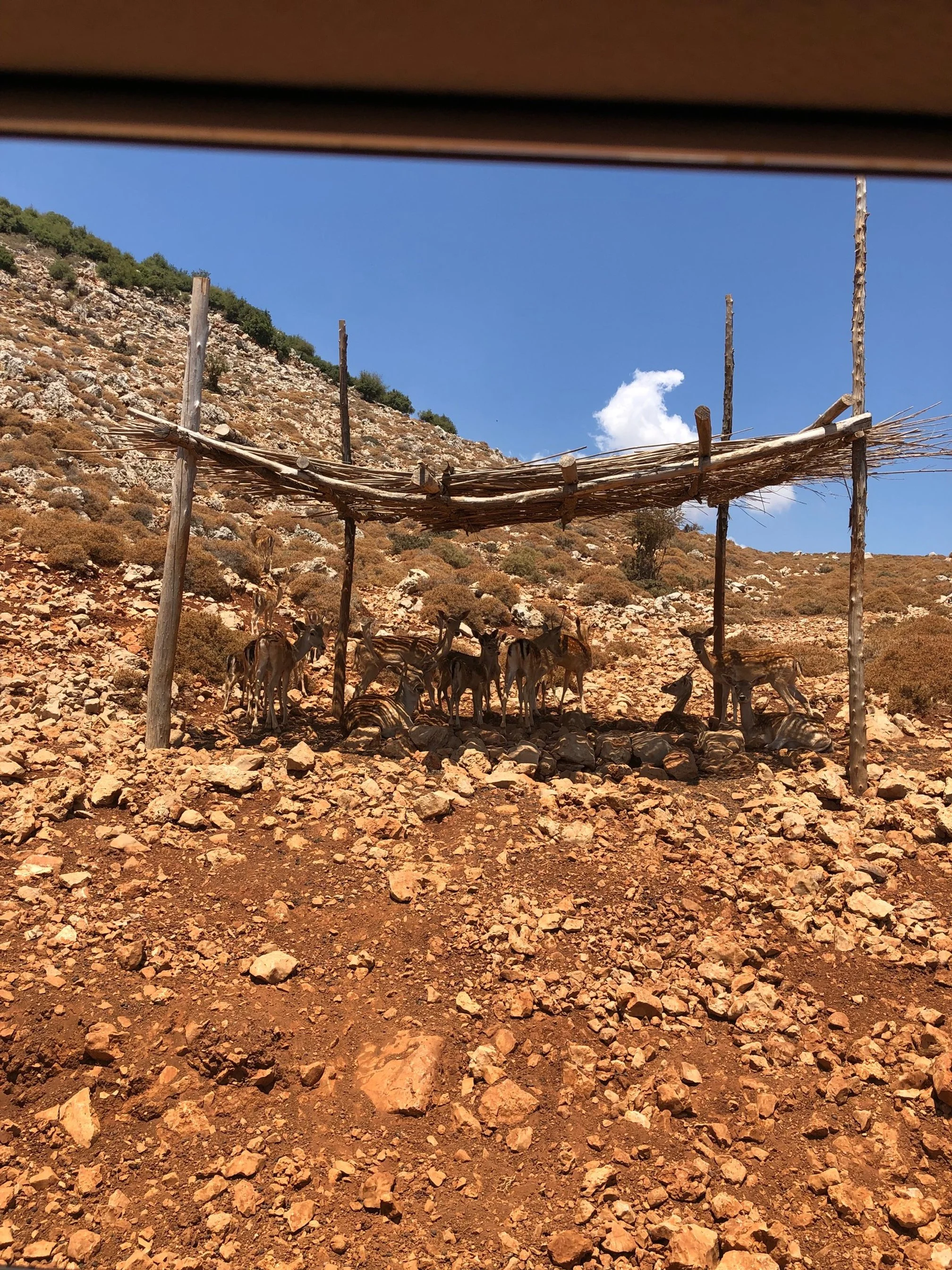The Story of the Deer in Lebanon and the Beginning of Hunting Season
The day carried the chill of winter, yet it blossomed like spring—alive with flowers, greenery, and a palette of vibrant colors. It was one of the most beautiful days of my life, for it was the first time I encountered this gentle, enchanting creature. I found myself lost in the depths of its unblinking eyes, as if they were whispering an endless tale—one of love for the land, for nature, and for all that it bestows upon us to create a life of true harmony.
For life is not measured by wealth or status, nor is it defined solely by civilization. It is a symphony, a delicate dance of all living beings, each playing its part to compose a world of balance, free from discord and decay. Yet, such harmony remains an unattainable dream unless we awaken to our duty—to restore what has been lost, to breathe life back into ecosystems that once thrived with creatures and plants now erased from our mountains and valleys under the guise of progress.
Restoring Lebanon’s Natural Balance: A Hunter Turned Conservationist
A few months ago, I spoke with someone about my deep love for this land, about the sorrow I carry as I witness its wounds during my journeys. And fate had its own way of responding—for I was led to meet a man whose devotion to nature is nothing short of noble. With his own hands and at his own expense, he has taken it upon himself to bring back a species long extinct from our lands. In his private sanctuary in Aana, West Bekaa, he nurtures them with unwavering care, preparing them for their return to the wilderness they once called home.
What makes his story even more remarkable is that he is a hunter—yes, a hunter. Yet, he is also the author of Lebanon’s hunting law, published in 2004 and officially enforced in 2017 after careful review by implementation committees. In the coming lines, I will shed light on its key provisions.
My decision to write this piece was sparked by the overwhelming response I received after sharing photos from my recent visit to the deer sanctuary last Sunday. Questions poured in from all directions, especially about hunting, as the season had just begun this month. While hiking on the very first day of the season, I came across countless spent shotgun shells scattered across the trails, a clear sign of how eagerly hunters awaited this time of year. You can find a video of these shells on my Instagram stories, along with glimpses from my visit to the deer sanctuary.
The Role of Responsible Hunting in Lebanon’s Ecosystem
Hunting, as explained by Mr. Fouad—the hunter and guardian of the sanctuary—is not merely a pastime but, when properly regulated, a vital tool for maintaining ecological balance and biodiversity. It must be guided by scientific research, ensuring that only specific species are hunted in a way that helps restore equilibrium to our fragile ecosystems.
For instance, when wild boar populations grow unchecked in certain areas, controlled hunting becomes necessary to prevent them from overwhelming other, more vulnerable species. This is where knowledge and expertise come into play—to direct hunting practices toward serving, rather than harming, the natural world.
Wildlife Under Threat: How Stray Animals and Poisons Are Harming Lebanon’s Ecosystem
One of the greatest threats to wildlife today, in Lebanon and beyond, is the unchecked rise in stray dog and cat populations, fueled by an overabundance of food sources, particularly waste left in nature. This issue, as highlighted in a BBC article, has become one of the leading causes of extinction for countless bird and animal species. However, the solution is never to kill, never to destroy, but to regulate—to implement vaccination and control measures that protect both these animals and the delicate balance of our ecosystems.
Another silent killer of biodiversity is the reckless use of poisons—whether sprayed on crops or used to eliminate rodents. The scattering of poisoned wheat, for instance, not only targets pests but also wipes out vast numbers of birds, bees, and countless other creatures essential to the web of life.
Inside Aana Wildlife Sanctuary: A Safe Haven for Lebanon’s Deer
Nestled in the western Beqaa, within the broader biosphere of the Shouf Reserve, lies the Aana Wildlife Sanctuary—a haven not open to visitors, for its sole purpose is the careful nurturing and rewilding of its inhabitants.
Founded 25 years ago by Mr. Fouad—who prefers to keep his full name private—the sanctuary began with just three deer, sheltered on land once granted to him by the late Prime Minister Rafic Hariri. His dream? To bring back the Lebanese deer, which had vanished from our lands. He sought them out from neighboring countries, and later introduced the striking black deer from Europe. Within the protected expanse of the sanctuary, he also cares for wild sheep and goats.
Few people know that less than a century ago, Lebanon’s forests were home to lions, leopards, deer, elephants, and bears—all of which have since disappeared from our landscapes.
The Return of the Deer: A Step Toward Restoring Lebanon’s Natural Beauty
Today, the sanctuary is home to over 200 deer, some of which have already been released into northern Lebanon. Thanks to the generosity of Brigadier General Carlos Edde, a larger land and mountain area has been secured for their continued growth. Mr. Fouad’s vision is to increase the female deer population to 400, allowing them to produce 400 fawns annually.
His goal is to release them first into protected reserves, keeping them safe from hunters, and then gradually into the wild, where they will help restore ecological balance. For deer, like wild goats and other grazing animals, play a crucial role in preventing forest fires by consuming the dry grass that fuels them.
Can Hunting Help the Environment? Understanding Lebanon’s Hunting Law
Lebanon’s hunting law, enacted in 2004 and enforced since 2017, aims to regulate hunting practices and ensure sustainability. Here are its key provisions:
Preserving natural heritage is a core principle.
Hunting seasons, permitted species, and designated areas are clearly defined.
Species harmful to agriculture or ecosystem balance may be selectively hunted.
Only licensed firearms, bows, and trained animals (such as hunting dogs and birds of prey) are permitted—traps, poisons, and nets are strictly prohibited.
Tampering with nests or habitats is forbidden.
Hunting licenses are mandatory at all times.
Violations result in fines and imprisonment.
How You Can Help Protect Lebanon’s Wildlife
I invite you, my readers, to reach out to me if you know of any individual initiatives working toward the restoration of Lebanon’s lost wildlife. Spreading awareness and supporting conservation efforts is crucial in ensuring that our ecosystems remain balanced and thriving.
And here are some beautiful shots from the sanctuary, reflecting its richness. They were kindly shared by Mr. Fouad, and I extend my sincere gratitude to him for welcoming me and for his dedication to this mission—may he serve as an inspiration to others.
Follow my journeys here:
📍 Blog: travellinglebanon.blog
📍 Instagram: @nidal.majdalani
📍 Facebook & Twitter: @Travelling Lebanon / @Nidal Majdalani
Copyright Notice and Sharing Policy
All content, including photographs and articles, is protected under copyright and is not permitted for business or commercial use. Photographs may be reposted on social media platforms only with proper credit and by tagging Nidal Majdalani’s social media accounts. Articles may be shared in their original form but cannot be copied, reproduced, or republished without prior written permission.
